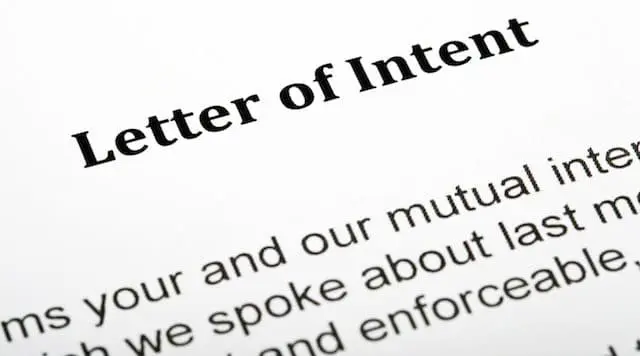This post is the fourteenth in a series giving practical advice to startups with respect to understanding and negotiating a venture capital term sheet.
In the prior thirteen posts, we provided an introduction to negotiation of the term sheet and discussed binding and non-binding provisions and discussed valuation, cap tables, and the price per share, dividends on preferred stock, liquidation preferences, the conversion rights and features of preferred stock, voting rights and investor protection provisions, anti-dilution provisions, anti-dilution carve-outs and “pay to play” provisions, redemption rights, registration rights, management and information rights, preemptive rights, and drag-along rights. In this post, we will discuss founder representations and warranties.
One of the items that the stock purchase agreement in a venture capital deal will include is the representations and warranties the company (and perhaps the founders) will make to the venture capital investor. Representations and warranties are the statements that a party to an agreement makes to the other party and upon which the other party is entitled to rely in entering into the transaction. They encompass both assertions about factual matters and promises that the facts truly are as stated, as of a certain date. The NVCA model term sheet (available here) provides that the company will make “standard” representations and warranties, and, as an option, that the founders will make representations and warranties regarding technology ownership, etc.
Since the details of the representations and warranties are usually negotiated after the term sheet has been signed, I won’t go into detail here. That said, the “standard” representations and warranties in a venture capital deal are lengthy and quite involved and you will need counsel to assist you in negotiating them. The founders should not disregard them as mere boilerplate or legalese, even though they are extremely complex and opaque. They also should not assume that their obligation to disclose all of these matters is fulfilled simply by making all of the company’s files available to the venture capital investor. The founders should carefully read and digest each of the statements and promises the company is making and prepare thorough lists or descriptions of any exceptions, keeping in mind that if any of the statements the company is making is untrue, or any of the promises the company is making is breached, then the venture capital investor may be entitled to damages. The founders may feel that the company cannot make certain blanket statements with a high degree of confidence – for example, the founders may not be 100% sure that the company’s intellectual property does not violate the intellectual property rights of any third-party anywhere in the world. From the venture capital investor’s point of view, however, the company should be the one to give assurance on that point in the agreement and bear the risk of liability in case it should prove untrue.
One issue that does arise during the term sheet stage is whether the founders will also be giving representations and warranties personally. Founders’ representations and warranties are not included in every venture capital purchase agreement. They are more likely to be included if the founders are to receive liquidity, if there are intellectual property concerns, or in international transactions. They are more likely to be included in an initial venture capital round, in which the founders bear greater risk, than in any later rounds. Founders should avoid making significant representations and warranties, if possible. If the founders cannot avoid making representations and warranties, the founders should request that the representations and warranties be made severally and not jointly, which means that each founder is responsible only for his proportionate share of the liability. Founders can also negotiate to have their liability for breaches limited to the then-current fair market value of the shares of company common stock currently owned by that founder and have that liability terminates on the earlier of the first or second anniversary of the agreement or an IPO.
The following is a list of typical founders’ representations and warranties:
- Conflicting agreements — statement that the founder is not in violation of any fiduciary or confidential relationship, any agreement, or any judgment, decree, or order, and none of these conflict with the founder’s obligations to promote the company’s interests or with the venture capital agreement.
- Litigation — statement that there is no pending or threatened litigation or investigation against the founder or any basis for any litigation.
- Stockholder agreements — statement that there are no agreements relating to the acquisition, disposition, registration, or voting of the company’s securities.
- Prior legal matters — statement that the founder has not been subject to petition under bankruptcy laws or the appointment of a receiver or similar, convicted in or subject to a criminal proceeding, subject to any court order, judgment, or decree limiting the founder’s engagement in business or acting as an officer or director of a public company, or found by a civil court, the SEC, or the CFTC to have violated any securities, commodities, or unfair trade practices law.
- Company representations and warranties — statement that the company’s representations and warranties are true and complete.
If the founders agree to make representations and warranties, they should be aware that they are assuming personal liability risk. The last representation in the list above is the most difficult one for founders to make, because they are essentially guaranteeing all of the company’s representations and warranties; if any are untrue or are breached, the founders’ personal assets are on the line. The venture capital investor, however, may insist that the founders stand behind the company’s representations and warranties to ensure that such representations and warranties are correct and so that it has recourse other than against the company it has invested in. The discomfort founders may feel about risking everything they own can be ameliorated by limiting their liability, as described above, to a certain amount and within a certain time frame. Given the high stakes that are involved in negotiating these issues, founders should not ignore them.
In the next post, we’ll discuss rights of first refusal and rights of co-sale.
This article is for general information only. The information presented should not be construed to be formal legal advice nor the formation of a lawyer/client relationship.





